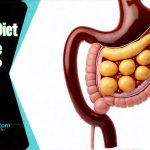The elimination diets gaining popularity – Paleo, Keto, Autoimmune Protocol (AIP), even just general “grain-free” approaches – often tout rapid results: reduced inflammation, increased energy, improved mental clarity. While these benefits can be experienced by some individuals, the speed at which grains are removed from the diet can inadvertently create a new set of challenges related to digestive function. Many people assume that simply cutting out problematic foods is enough, but the body’s adaptation (or maladaptation) to such swift changes isn’t always straightforward. What often gets overlooked is the significant role grains play in gut microbiome composition and overall digestive efficiency, even for those who perceive themselves as intolerant. The sudden absence of these carbohydrates can disrupt established microbial ecosystems and slow down motility, leading to a range of uncomfortable symptoms that are frequently misattributed to ongoing food sensitivities or other health issues.
This isn’t about advocating for grain consumption; it’s about recognizing the complexity of digestive physiology. Our gut is an incredibly dynamic environment, accustomed to processing certain types of fiber and carbohydrates over years – even decades. Removing a significant source of these substrates too quickly can create imbalances that take time and mindful reintroduction strategies to address. The goal isn’t necessarily permanent grain exclusion for everyone; it’s about understanding how the digestive system reacts to change and supporting its ability to adapt in a healthy way. Ignoring this principle often leads to frustrating setbacks, prolonged discomfort, and even the development of new sensitivities as the gut struggles to compensate. It is vital to approach dietary changes with awareness and patience, not just enthusiasm for restriction. You can learn more about key takeaways from tracking digestive data over time.
The Microbiome Disruption & Motility Slowdown
Grains, despite their negative portrayal in some nutritional circles, provide a food source for beneficial bacteria within our gut microbiome. While refined grains offer limited nutritional value, whole grains contain prebiotic fibers – resistant starches and non-digestible carbohydrates – that nourish specific bacterial populations. These bacteria then produce short-chain fatty acids (SCFAs) like butyrate, propionate, and acetate, which are crucial for gut health, immune regulation, and even brain function. Abruptly removing these food sources can lead to a decrease in the abundance of SCFA-producing bacteria, altering the microbial balance and potentially contributing to symptoms like bloating, gas, and changes in bowel habits. This isn’t necessarily a “bad” microbiome; it’s simply a shifted one, requiring time to re-establish equilibrium. Understanding how digestive enzymes differ from probiotics can also provide insights into gut health.
Furthermore, grains contribute to digestive motility – the movement of food through the digestive tract. Fiber adds bulk to stool, stimulating peristalsis (the wave-like muscle contractions that move waste along). When grains are removed rapidly, and fiber intake isn’t adequately replaced with other sources (vegetables, fruits, legumes), this can result in constipation or sluggish digestion. This slowed motility doesn’t just impact bowel movements; it also affects the absorption of nutrients and potentially leads to increased bacterial fermentation within the colon, exacerbating gas and bloating. The gut is a system reliant on consistent, predictable input – sudden changes disrupt that rhythm.
The combination of microbiome disruption and reduced motility creates a feedback loop. Slower digestion allows more time for fermentation, producing gas and discomfort, which further impacts bowel function. This can lead to a feeling of fullness or distension even after eating small amounts of food, making it difficult to determine what foods are truly problematic versus simply being a consequence of the digestive slowdown. It’s crucial to differentiate between a true food sensitivity and a temporary digestive reaction caused by rapid dietary changes. If you experience bloating often, consider why you may feel bloated.
Reintroducing Fiber & Supporting Microbial Diversity
The key to mitigating these delays is a slow and strategic reintroduction of fiber-rich foods – not necessarily grains immediately, but other sources that can support microbial diversity and motility. This process should be personalized and guided by how your body responds. Here’s a step-by-step approach:
- Focus on easily digestible fibers: Begin with cooked vegetables like carrots, zucchini, or sweet potatoes. These are less likely to cause immediate fermentation and discomfort compared to raw vegetables or large quantities of cruciferous vegetables (broccoli, cauliflower).
- Increase fluids: Adequate hydration is essential for healthy digestion and helps prevent constipation as fiber intake increases. Aim for at least 8 glasses of water per day.
- Introduce small amounts of fermented foods: Incorporate kefir, sauerkraut, or kimchi to introduce beneficial bacteria and support microbiome recovery. Start with a tablespoon or two and gradually increase as tolerated. For a more comprehensive look at gut health, explore digestive panels that go beyond probiotics.
Beyond dietary changes, lifestyle factors play a significant role. Stress management techniques (yoga, meditation) can help regulate the digestive system, as stress often exacerbates gut issues. Gentle exercise also promotes motility. Remember that patience is paramount – rebuilding a healthy gut takes time and consistent effort. Don’t rush the process or compare your progress to others. Digestive tests can also help you understand your individual needs.
The Role of Gut-Healing Protocols & Digestive Enzymes
Many elimination diets are accompanied by “gut-healing protocols” aimed at reducing inflammation and repairing the intestinal lining. These often include supplements like L-glutamine, collagen peptides, and zinc carnosine. While these may be beneficial for some individuals, it’s important to use them judiciously and under the guidance of a healthcare professional. Overreliance on supplements can sometimes mask underlying issues or create dependencies. A food-first approach is generally preferable, focusing on whole, nutrient-dense foods that support gut health naturally.
Digestive enzymes can be helpful in temporarily assisting with digestion during periods of motility slowdown. Enzymes like amylase (for carbohydrates), protease (for proteins), and lipase (for fats) help break down food into smaller components, easing the burden on the digestive system. However, they should not be seen as a long-term solution. The goal is to restore your body’s natural ability to produce these enzymes effectively. Relying solely on supplemental enzymes can potentially hinder this process. It’s also important to consider if too much water could dilute digestive enzymes.
Listening To Your Body & Avoiding Reactive Restriction
The most common mistake people make when eliminating grains (or any food group) too quickly is reactive restriction – continuing to eliminate foods based on perceived sensitivities without understanding the underlying cause of their symptoms. As discussed earlier, many digestive issues after grain removal are simply a result of the system adjusting and require time to rebalance. If you experience bloating, gas, or changes in bowel habits after removing grains, don’t automatically assume you’re intolerant to other foods.
Instead, focus on the strategies outlined above – increasing fiber intake slowly, staying hydrated, managing stress, and potentially incorporating fermented foods and digestive enzymes. Track your symptoms carefully and identify patterns. If symptoms persist despite these efforts, then it may be time to explore potential food sensitivities with a healthcare professional or registered dietitian. But avoid unnecessary restriction until you’ve given your gut adequate time and support to adapt.
Remember that dietary changes are not one-size-fits-all. What works for one person may not work for another. The key is to listen to your body, be patient, and approach the process with a holistic mindset – recognizing that digestive health is interconnected with overall well-being. It’s about creating a sustainable relationship with food, not simply eliminating everything perceived as problematic. Consider if eating too quickly could be contributing to your symptoms.


















